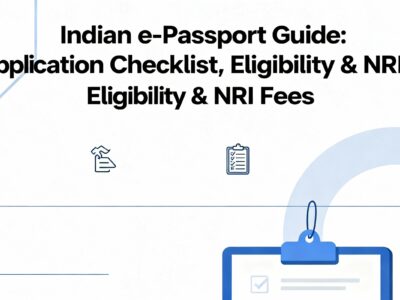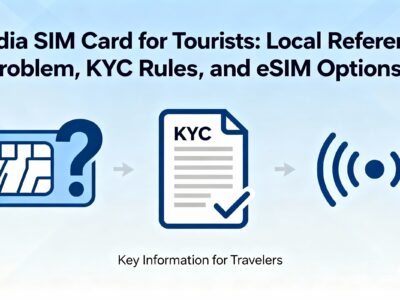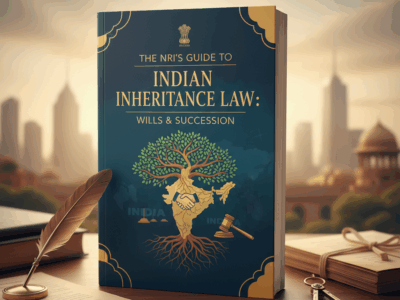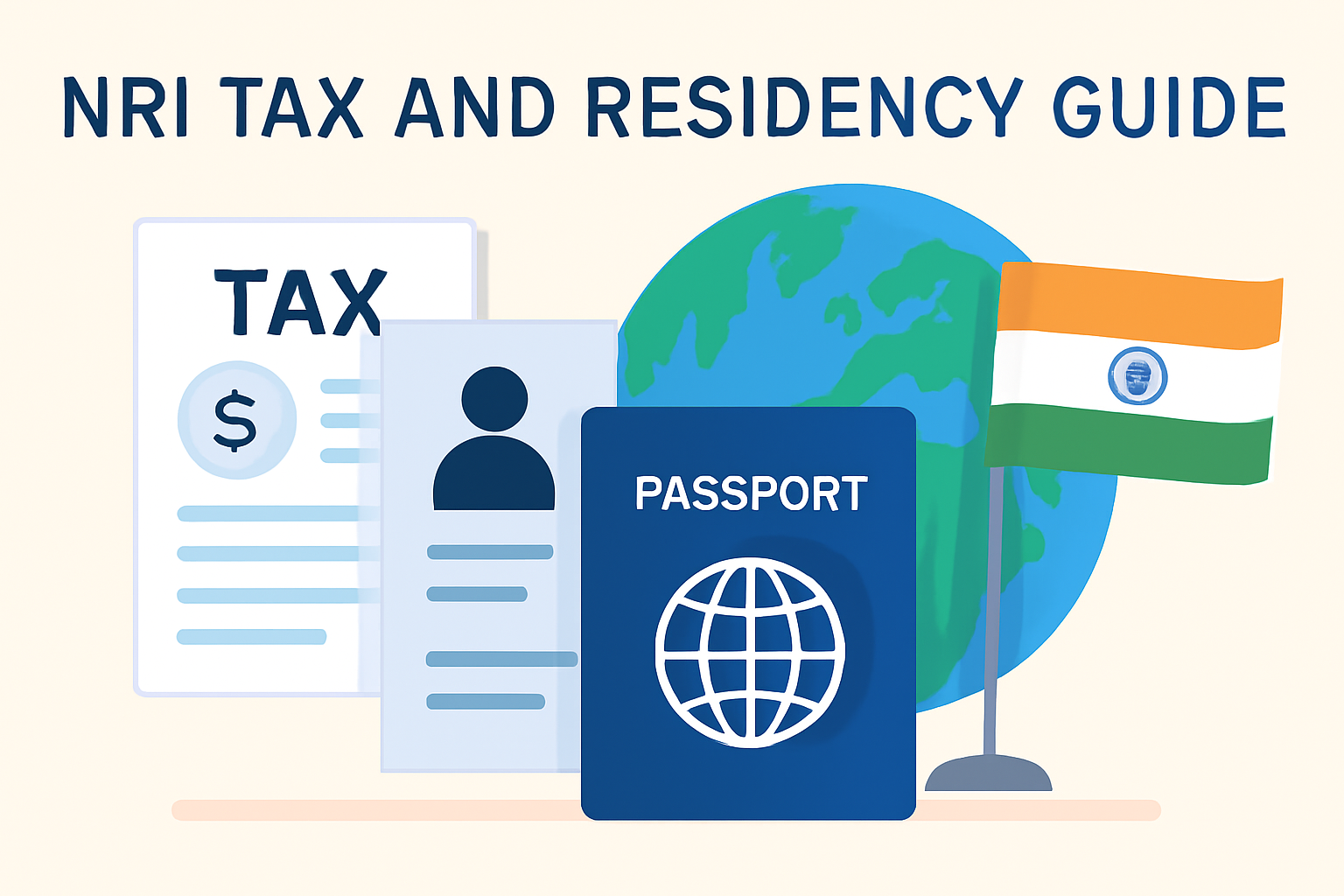Sending money to your parents in India is more than a financial transaction; it’s a gesture of love and support. However, navigating the complex web of Indian tax laws and foreign exchange regulations can be daunting. This comprehensive guide is designed to demystify the process for both NRI children and their parents. We’ll walk you through the essential legal frameworks, including the Income Tax Act and FEMA, explain how to ensure your gift is completely tax-free, and provide the necessary documentation checklists to create a seamless and compliant transfer. From understanding the “relative” exemption to crucial foreign reporting requirements like the IRS Form 3520, consider this your ultimate resource for a worry-free remittance.
evaakil.com
A Guide to Tax-Free Gifts from NRI Children to Parents in India
Understand the legal framework, compliance requirements, and tax implications of sending money to your parents in India. Navigate FEMA and the Income Tax Act with confidence.
Part I: The Legal Foundation
Understanding the laws that govern your transaction.
The Dual Regulatory Landscape
Sending money from abroad to India isn't governed by a single law, but two. It's crucial to understand both to ensure full compliance.
Income Tax Act, 1961
Determines if the money received by your parents is taxable income.
FEMA, 1999
Governs the procedure of how foreign currency is transferred into India.
The 'Relative' Exemption: Your Key to Tax-Free Gifts
Under Section 56(2)(x) of the Income Tax Act, gifts from non-relatives over ₹50,000 in a year are taxable. However, gifts from a "relative" are completely tax-free, regardless of the amount.
The relationship between a child and a parent falls directly under this exemption, as a parent is a "lineal ascendant".
Key Takeaway: Monetary gifts from a son or daughter to their parents in India are 100% exempt from income tax in the parents' hands.
Who Qualifies as a 'Relative'?
The definition is specific. Use the filter below to check qualifying relationships.
| Relation to the Recipient | Covered by Exemption? |
|---|
Part II: The Compliant Process
Executing the remittance correctly to avoid future issues.
The Golden Triangle of Documentation
To create an indisputable legal trail for the tax authorities, you need three key documents. Think of them as three sides of a protective triangle for your transaction.
1. Gift Deed
A formal legal document declaring the transaction is a gift out of love and affection, with no consideration. This establishes the *intent*.
2. FIRC / FIRS
The Foreign Inward Remittance Certificate/Statement from the receiving bank. This proves the legal *path* of the money into India.
3. Bank Statement
The parent's bank statement showing the credit entry. This confirms the final *receipt* of the funds.
Part III: The Cost of Gifting - Stamp Duty
A mandatory cost for making your Gift Deed legally valid.
Understanding Stamp Duty on Gift Deeds
While the gift itself is tax-free, the Gift Deed document must be executed on non-judicial stamp paper of an appropriate value. This is a mandatory state tax. Rates vary significantly across states and are a percentage of the gifted amount. Many states offer concessions for gifts between blood relatives.
Important: Stamp duty must be paid by the donor (the child). If the donee (parent) pays it, the transaction could be interpreted as a sale, not a gift.
State-wise Stamp Duty on Monetary Gifts (Illustrative)
| State | Stamp Duty for Gifts to Blood Relatives | Standard Stamp Duty |
|---|---|---|
| Maharashtra | 3% (or flat ₹200 for residential/agri property) | 5% |
| Karnataka | ₹1,000 to ₹5,000 (fixed) | 5% |
| Delhi | 4% (to female relative), 6% (to male) | 6% |
| Uttar Pradesh | ₹5,000 (fixed) | 7% |
| Tamil Nadu | 1% | 7% |
| West Bengal | 0.5% | 6% |
Rates are indicative and subject to change. Please verify with your local Sub-Registrar's office.
Part IV: Post-Remittance Tax Planning
The gift is tax-free, but income earned from it is not.
Tax on Income from Gifted Funds
While the principal gift amount is exempt, any income your parents generate by investing this money is fully taxable in their hands. This is a legitimate tax-planning tool, as parents are often in a lower tax bracket.
Crucially, the "clubbing of income" provisions (which tax income in the hands of the giver) do not apply to gifts from an adult child to their parents. The income is taxed in the parent's hands only.
Pro Tip for Parents: Form 15G/15H
If your total annual income (including interest from the gift) is below the taxable limit, submit Form 15G (for individuals) or 15H (for senior citizens) to your bank. This prevents the bank from deducting TDS (Tax Deducted at Source) on your interest income.
Interactive Tax Calculator on Investment Income
Part V: A Critical Note for the Donor
Compliance doesn't end in India.
Foreign Reporting Requirements
While you, the NRI child, have no tax liability in India for making the gift, you may have significant reporting obligations in your country of residence. This is a frequently overlooked and high-risk compliance gap.
Special Alert for U.S. Residents (Citizens & Green Card Holders)
If you gift more than $100,000 to your parents in India in a single tax year, you are legally required to report this to the IRS by filing Form 3520. This is a disclosure form, and no tax is due. However, the penalty for failing to file is severe: a minimum of $10,000, or up to 25% of the gift amount.
Similar reporting laws exist in other countries. It is imperative to consult a tax advisor in your country of residence to ensure you are fully compliant with local laws.
Part VI: Actionable Checklists & Specimen Deed
Your step-by-step guide to a compliant transaction.
Checklist for NRI Child (Donor)
- ✓Use an authorized channel (SWIFT/wire transfer).
- ✓Instruct bank to use RBI Purpose Code P1301 (Gifts).
- ✓Execute a formal Gift Deed and pay the applicable stamp duty.
- ✓Crucial: Consult a tax advisor in your country of residence for local reporting (e.g., IRS Form 3520).
Checklist for Parents in India (Donee)
- ✓Ensure your receiving bank account is KYC compliant.
- ✓Sign the Gift Deed and have it witnessed.
- ✓Request the e-FIRC/FIRS from your bank.
- ✓File the "Golden Triangle" documents securely.
- ✓Submit Form 15G/15H to bank if your income is below taxable limits.
Specimen Gift Deed
A template for a monetary gift. We recommend consulting a lawyer.
GIFT DEED FOR SUM OF MONEY
This Deed of Gift is made and executed on this ______ day of __________, 20__, at __________.
BETWEEN:
[Full Name of Child], Son/Daughter of [Father's Name], aged ___ years, holding Passport No. __________, with Permanent Account Number (PAN) __________, currently residing at [Full Foreign Address], hereinafter referred to as the “DONOR”.
AND
[Full Name of Parent], Son/Daughter/Wife of, aged ___ years, holding Permanent Account Number (PAN) __________, residing at [Full Indian Address], hereinafter referred to as the “DONEE”.
WHEREAS:
1. The Donor is the son/daughter of the Donee and holds great natural love and affection for the Donee.
2. The Donor is a Non-Resident Indian (NRI) and is absolutely possessed of his/her self-acquired funds from legitimate earnings and savings abroad.
3. Out of this natural love and affection, the Donor is desirous of making a one-time, unconditional, and irrevocable gift of a sum of money to the Donee, without any monetary consideration.
NOW, THIS DEED WITNESSETH AS FOLLOWS:
1. Declaration of Gift: In consideration of the natural love and affection, the Donor does hereby, voluntarily, give, grant, and transfer to the Donee a sum of [Amount in figures, e.g., ₹50,00,000] (Rupees [Amount in words] only) as an absolute and irrevocable gift.
2. Mode of Transfer: The said sum has been gifted by the Donor to the Donee by way of an international wire transfer with reference no. ____________.
3. No Consideration: This transfer is a gift, and the Donor has not received and will not receive any consideration from the Donee.
4. Possession and Ownership: The Donee shall become the absolute owner of the gifted sum.
5. Irrevocability: This gift is irrevocable, and the Donor relinquishes all rights to the gifted sum.
IN WITNESS WHEREOF, the parties have set their hands on this deed.
WITNESSES:
1. __________________
(Name, Address, PAN)
2. __________________
(Name, Address, PAN)
__________________
(DONOR)
__________________
(DONEE - I accept the above gift)
Part VII: The Compliance Decision Tree
A quick visual guide to navigate your compliance journey.
Start Here: Are you sending/receiving money from a child/parent abroad?
Is the recipient a "relative" as per the Income Tax Act? (e.g., parent, child, spouse)
Tax-Free Gift!
The principal amount is not taxable in India, regardless of the amount.
Action for Parent (Recipient):
- Obtain Gift Deed, FIRC, and Bank Statement.
- Pay tax only on income generated from the gift.
- File Form 15G/H if applicable.
Action for Child (Donor):
- Use RBI Purpose Code P1301.
- Pay stamp duty on Gift Deed.
- Check foreign reporting laws (e.g., IRS Form 3520 in the US for gifts > $100k).
Is the total gift amount from all non-relatives in the financial year > ₹50,000?
Not Taxable
The gift is exempt as it's below the threshold.
Fully Taxable
The entire gift amount is taxable as "Income from Other Sources" for the recipient.










